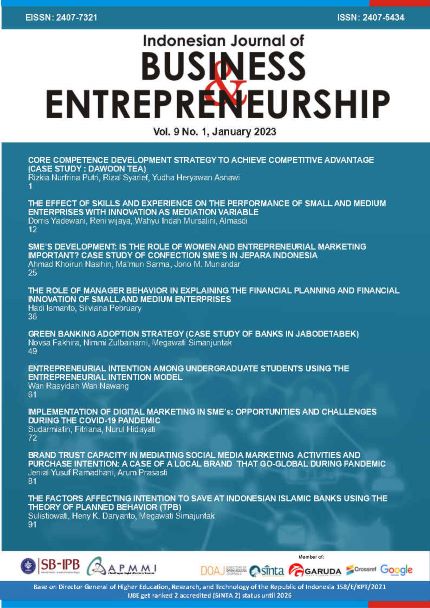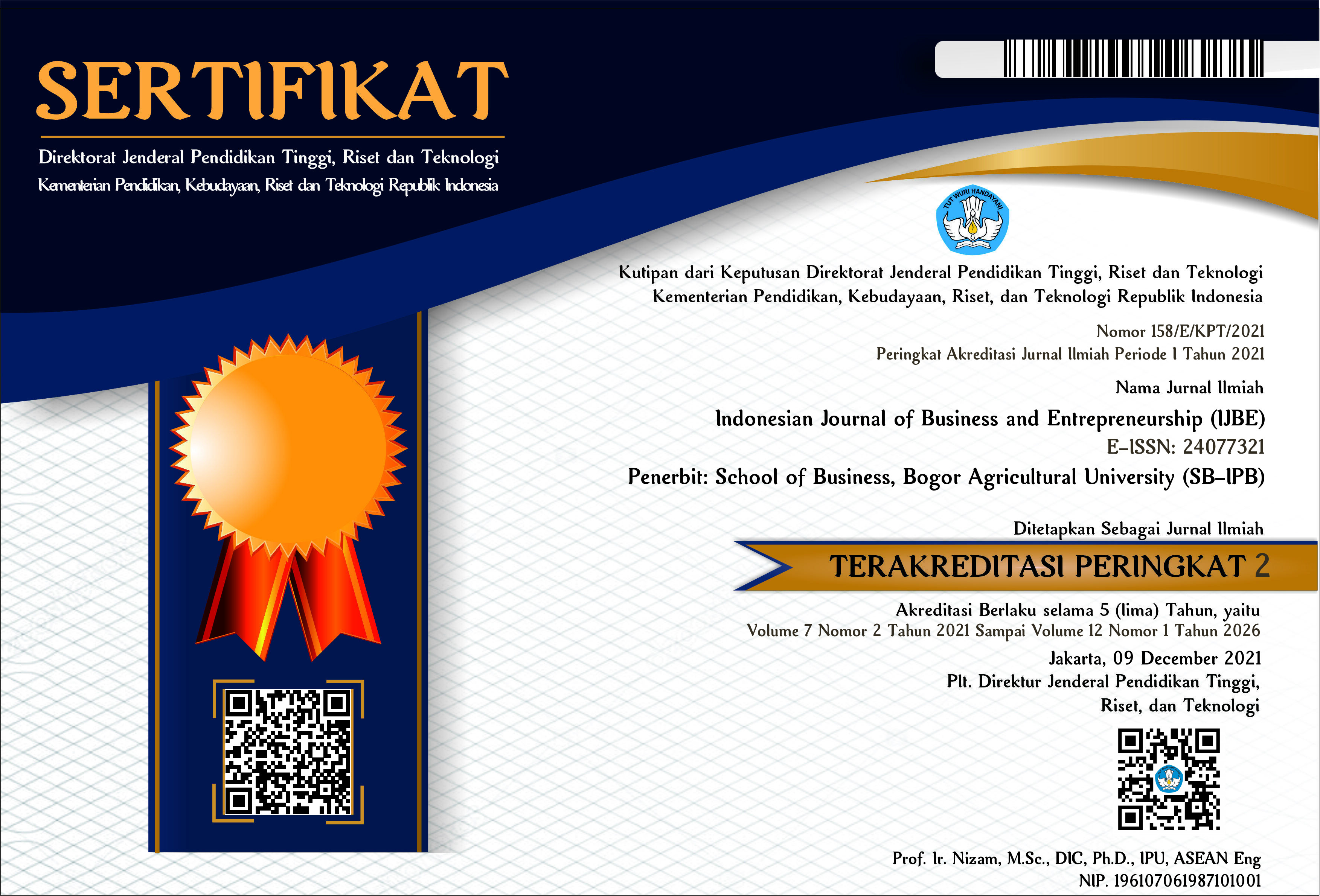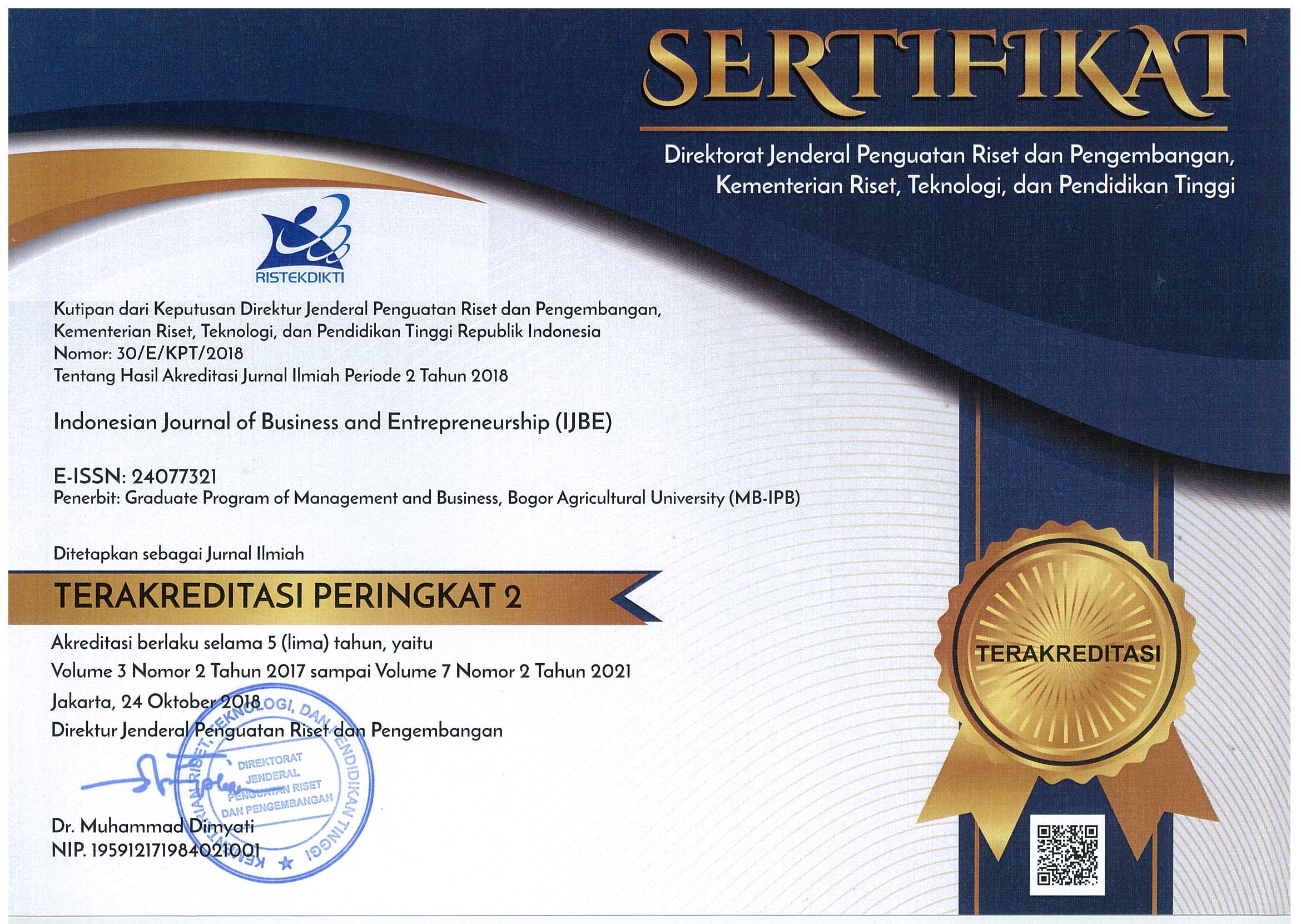Green Banking Adoption Strategy (Case Study of Banks in Jabodetabek)
Abstract
Green banking is a bank’s operational activities to reduce environmental damage and preserve nature, thereby contributing to sustainable development. Green banking provides solutions for companies to various customer problems and business competition. The rapidly developing information and communication technology and the increasing number of people using the internet are opportunities for banks to transform to green banking. This study aims to prove the relationship between the variables that influence the adoption of green banking with the factors that influence the adoption of green banking, analyze the strategy by using SWOT analysis, and formulate managerial implications for increasing the adoption of green banking. The study was conducted on bank employees who have implemented green banking with 88 respondents who were determined by voluntary sampling. Data were collected using an online questionnaire. The statistical analysis used is the Structural Equation Model (SEM)-PLS. The results showed that all variables strongly correlate with the factors influencing green banking adoption. Banks can adopt green banking strategies based on the SWOT analysis results: green banking product innovation, increasing community empowerment programs, developing internal capabilities, collaboration with fintech and improving public education about the use of green banking. Several managerial implications that companies can carry out are with the latest marketing mix and formulating various green banking adoption strategies.
Keywords: brand image, competitor pressure, green banking adoption, top management support, value creation









